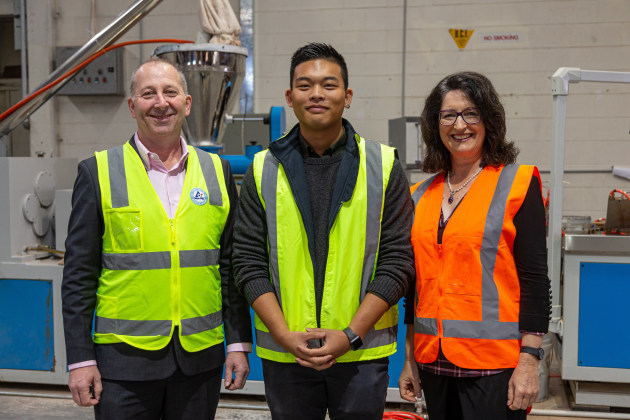Tetra Pak has partnered with a New Zealand company to recycle used beverage cartons into building material by the end of the year.
The packaging giant will team up with New Zealand Plastic Products to turn beverage cartons into premium wood plastic composite (WPC), which can be used to replace timber in the building industry, especially for wide-profile decking.
“Until today, Tetra Pak cartons had to be sent overseas to be recycled, but later in 2019, we’ll be able to recycle them here in New Zealand,” said Andrew Pooch, managing director of Tetra Pak Oceania. “We’ll recycle them into this wood plastic composite, which primarily can be used to replace rainforest timber for decking, but also will have other uses in the building industry.”
According to Pooch, cartons can be a valuable resource long after their primary use.
“Our partnership with New Zealand Plastic Products will see the set-up of a local carton recycling solution in South Auckland where all materials from used beverage cartons including caps and straws will be recycled into something new and useful, limiting the need for virgin materials.
“This increases the overall value of used beverage cartons, making the value chain for collection and recycling more efficient and, importantly, viable in New Zealand,” he said.

Gavin Feng, director of New Zealand Plastic Products, said he was proud to partner with Tetra Pak on what he calls an economically and environmentally sustainable carton recycling solution that combines his company’s resource management expertise with Tetra Pak’s knowledge of packaging material.
“The paper fibres used to produce beverage cartons are long and strong, and the combination of polymers and aluminium along with the fibre make it extremely useful to produce robust wood plastic composite.
“Creating a strong market for recycled materials will encourage interest in collecting used beverage cartons, which will eventually lead to an increase in the domestic recycling rate,” he said.
The partnership will not only limit the number of cartons going to landfill and reduce overseas recycling dependency, but create a stable domestic end market for used cartons, Tetra Pak says.
Commenting on progress being made on this front in Australia, Pooch says: "Just as we did in New Zealand, we are currently working on a long-term local recycling solution for used beverage cartons in Australia to help reduce dependency on waste export channels. It is important that this solution caters to the unique needs of the market and we find the right partner.”





